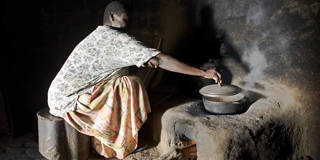The models are in place to achieve clean cooking for all, which would have enormous benefits for the climate, health, and gender equality. Now rich-country governments, the private sector, and international organizations must agree to provide the necessary funding at this week’s IEA Summit on Clean Cooking in Africa.
ABU DHABI/LONDON – For most of her life, Florence Auma Ode cooked over an open fire in her Kenyan home. The resulting smoke coated the walls with a layer of soot and filled her lungs – and those of her family members – with particulate matter.
In 2022, Florence’s family invested nearly a month’s salary in a modern two-burner bioethanol stove, which uses affordable fuel and cooks food quickly and cleanly. The stove has improved the health of the whole family. Equally important, Florence no longer has to spend five hours each day collecting firewood. Now she can use that time to take classes, generate income, or enjoy leisure activities.
In the Global North, achieving clean cooking for all may seem mundane compared to other, more grandiose forms of climate action. But switching to clean-cooking technologies would cut global carbon dioxide emissions by 1.5 billion tons, the same amount generated by all planes and ships today. And given that forests the size of Ireland are lost each year to fuel-wood and charcoal production, eradicating dirty cooking would significantly reduce deforestation and biodiversity loss.

ABU DHABI/LONDON – For most of her life, Florence Auma Ode cooked over an open fire in her Kenyan home. The resulting smoke coated the walls with a layer of soot and filled her lungs – and those of her family members – with particulate matter.
In 2022, Florence’s family invested nearly a month’s salary in a modern two-burner bioethanol stove, which uses affordable fuel and cooks food quickly and cleanly. The stove has improved the health of the whole family. Equally important, Florence no longer has to spend five hours each day collecting firewood. Now she can use that time to take classes, generate income, or enjoy leisure activities.
In the Global North, achieving clean cooking for all may seem mundane compared to other, more grandiose forms of climate action. But switching to clean-cooking technologies would cut global carbon dioxide emissions by 1.5 billion tons, the same amount generated by all planes and ships today. And given that forests the size of Ireland are lost each year to fuel-wood and charcoal production, eradicating dirty cooking would significantly reduce deforestation and biodiversity loss.